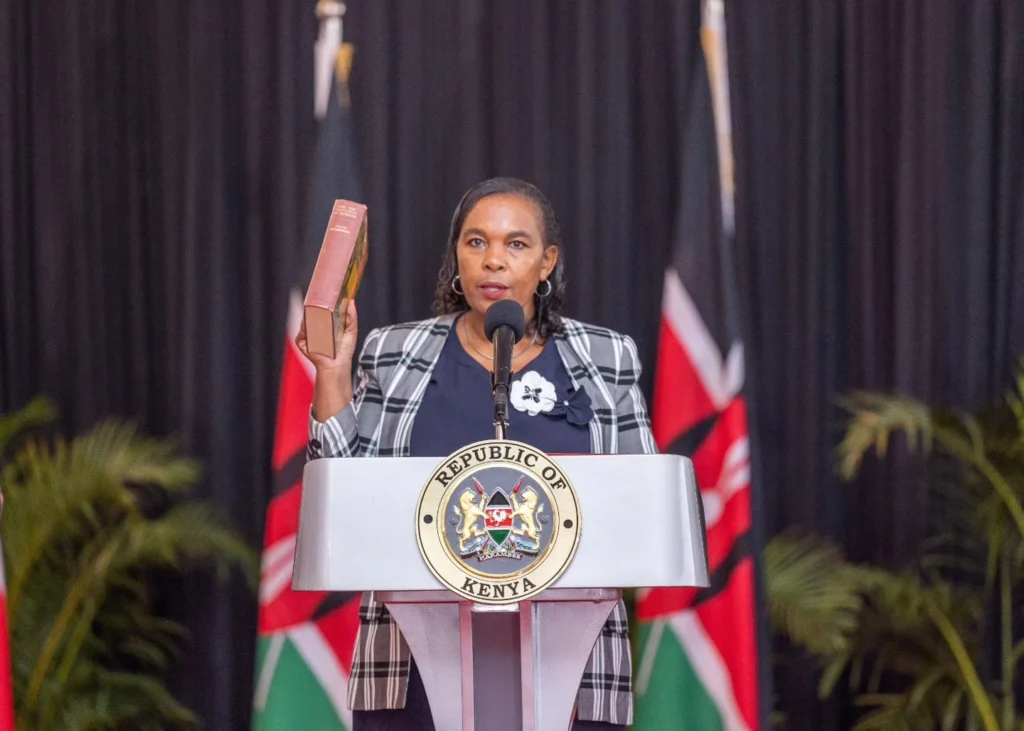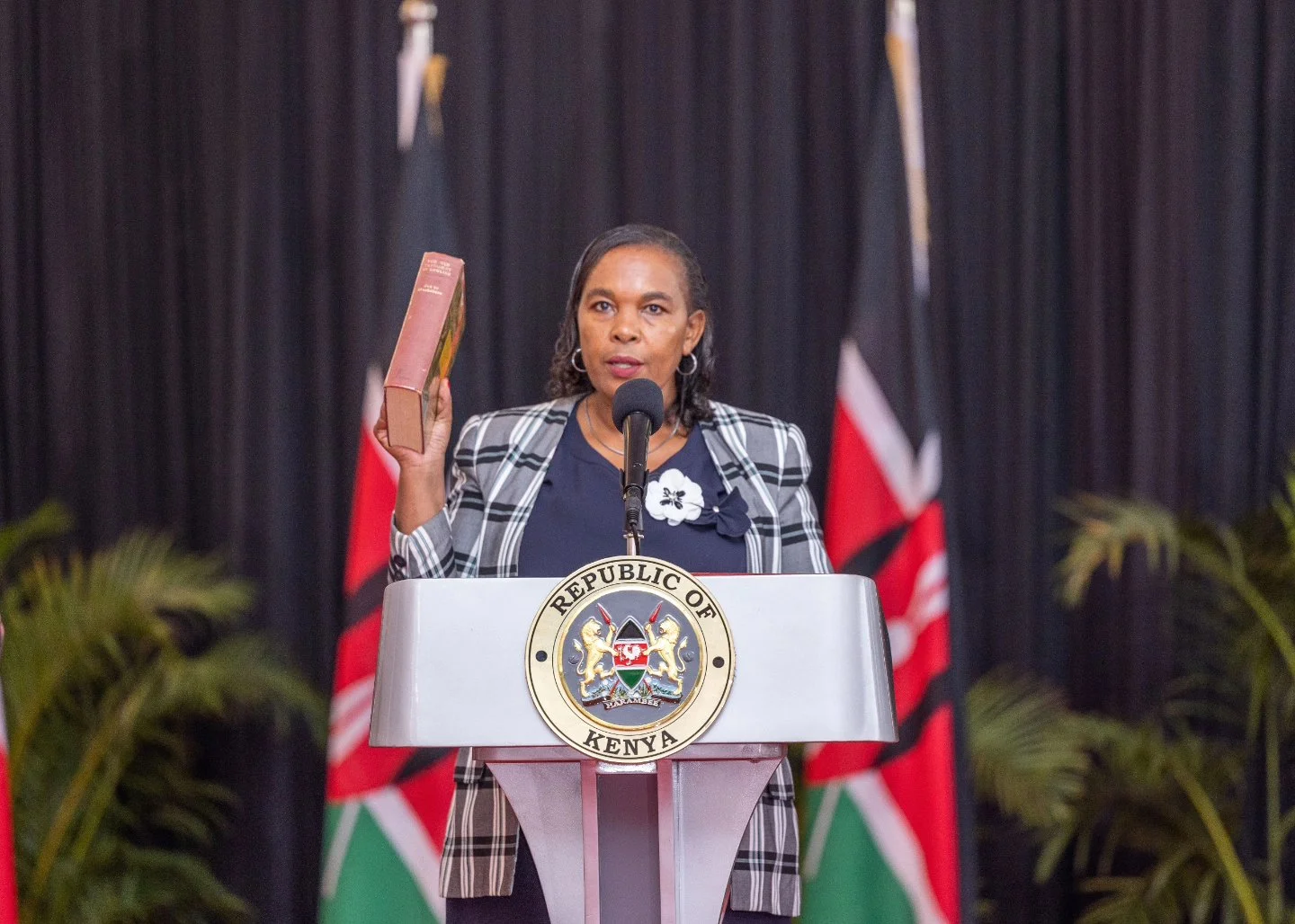In a significant reshuffle, Kenyan President William Ruto has replaced nearly all members of his cabinet, with only Prime Cabinet Secretary Musalia Mudavadi and Deputy President Rigathi Gachagua retaining their positions. Among those replaced is Eliud Owalo, the Cabinet Secretary for ICT and Digital Economy, who has been succeeded by Margaret Ndung’u, a prominent figure in Kenya’s digital ecosystem.
Margaret Ndung’u brings over two decades of experience in the ICT sector, recognized for her deep expertise in digital policy, innovation, and ICT development. She began her career at Africa Online Holdings as a content editor and web designer, laying the foundation for her future accomplishments in the industry. Her commitment to digital advancement continued at Econews Africa, where she served as a research officer and led the establishment of telecenters across Kenya, Uganda, and Tanzania, with support from the International Development Research Centre (IDRC).
Ndung’u’s journey in ICT expanded at Amref Kenya, where she took on the roles of ICT Officer and Telemedicine Coordinator, integrating ICT solutions into mobile health services. She also coordinated a regional research project at AfriAfya, funded by IDRC, which applied ICT in HIV/AIDS responses across several African nations, including Kenya, Uganda, Tanzania, Botswana, and South Africa.

Her analytical and leadership skills were further showcased at the Global e-Schools and Communities Initiative (GESCI), where she assessed progress towards knowledge societies with a focus on ICT, innovation, science and technology, and education. Ndung’u has also contributed academically as a research fellow and guest lecturer at Tshwane University of Technology in South Africa and as a part-time lecturer at the School of Computing and Informatics at the University of Nairobi.
In her role with the World Bank, Ndung’u worked on Kenya’s Digital Economy Country Diagnostic, contributing to the Digital Infrastructure and Digital Platforms pillars. She has also served on the Communications and Multimedia Appeals Tribunal (CAMAT) under Kenya’s Ministry of Information and Communication Technologies, where she was recognized for her regulatory expertise.
Ndung’u’s influence extends beyond Kenya through her work with the Policy and Regulation Initiative for Digital Africa (PRIDA) at GFA Consulting Group GmbH, focusing on ICT regulatory issues and internet governance in Ethiopia. PRIDA is a collaborative effort between the African Union (AU), the European Union (EU), and the International Telecommunication Union (ITU).
Additionally, Ndung’u is the founder of INIIT Kenya, reflecting her entrepreneurial spirit and dedication to ICT innovation. She contributes to research and serves on the editorial board of LONDA (Digital Rights and Inclusion Annual Reports), emphasizing her commitment to digital rights and inclusion. She is also a founding member and director of the Network of African Women in Cybersecurity (NAWC), advocating for the representation and inclusion of African women in the cybersecurity field.
Margaret Ndung’u’s career is a testament to her unwavering commitment to digital innovation and policy. Her extensive contributions have significantly shaped the digital landscape in Kenya and beyond, establishing her as a key figure in the global digital economy.





